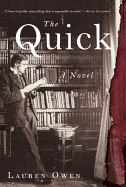I was lucky enough to sit down with Cara Black, author of the Aimée Leduc detective series--the latest is Murder in Pigalle (Soho Crime)--at the Tucson Festival of Books. Black told a story about how someone referred to her mysteries (which are set in 1990s Paris), as "historical fiction." That made me laugh, and made me wonder about how difficult it is to keep a series fresh after so many years.
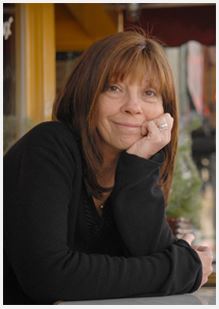 Is it hard to write books that keep series fans happy, but are still approachable for new readers?
Is it hard to write books that keep series fans happy, but are still approachable for new readers?
That's a great question! I never thought I was writing a series. I was passionate to tell the story in my first book, Murder in the Marais, and then my editor said, "Where is Aimée going next? You are writing a series?" and I said yes, and went to the next place she'd be. So the first book was set in 1993, and now, 14 books later, we're still in 1998.
What I realized the challenge is, is to keep it familiar, and yet fresh. I'm excited about where the series is going now, with Aimée being pregnant, and having to deal with things she's always avoided. It's a challenge for me, and for Aimée, and she's going to have to grow up in some ways.
Is it hard to write books set slightly in the past? To remember what technology came out when?
It totally is, it's a real challenge. As I kept writing the books, I just moved the plots along a few months, and so now, instead of writing about the present, we're in 2014 talking about 1998. Did they have dial-up? Was Wired magazine out? And I always get e-mails from readers saying, "I like your book, but you know in France they pay in euros, not francs."
And often I drive down to the Stanford library, and look at microfiche, and look at the newspapers for a particular day in 1998 and see who was on strike, what was on sale, what the weather was, what world events were; it helps me go into that time. Then I try to set the books with current events, like the World Cup, which was in Paris in 1998, to help people remember.
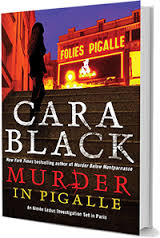 Do you think you might ever decide to flash forward? Suddenly have Aimée and her 12-year-old kid interacting?
Do you think you might ever decide to flash forward? Suddenly have Aimée and her 12-year-old kid interacting?
It's a possibility. I mean, I like paying in francs. There's something about it. And I don't have to worry about Facebook and things like that. I considered moving ahead at one point, when MySpace was big, but now who even remembers MySpace? It's tricky with technology. If I do move forward, how would I do it? I think about it, and then I think I like where Aimée is. Because otherwise you have to kind of subvert the modern technology to tell the kind of story I'm telling. There's only so many times a cellphone can be out of range, etc., and I want character-driven books, not technology driven.
Since you're not French, what inspired you to set your series in Paris?
Well, I had visited France, I read a lot of Georges Simenon, which I loved, but those are set a long time ago. I had a story I wanted to tell about a Jewish girl in hiding in Paris during World War II [in Murder in the Marais]. And then I was staying in Paris with friends, and I looked around, and no one was writing about modern-day Paris, what it was like to live there, in English anyway. I wanted to write about the people I know, where they go, not the tourist traps. So I started setting my books in different arrondissements, in the places I'd been, and seen.
My third book is set in the garment district, because I loved that area. I ended up there after missing a bus, and there were basement sweatshop workers, and then above was where Madame Pompadour had lived, and then on top there were gaming start-ups, and I wanted to reflect that juxtaposition.
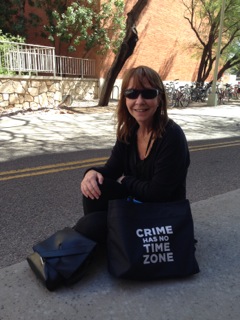 Do you have a favorite arrondissement? Do you stay in different areas when you're researching your books?
Do you have a favorite arrondissement? Do you stay in different areas when you're researching your books?
I love them all, they're all so different. I like the working-class part of the 17th; I'm going to be cat-sitting for a friend in the 10th soon. Even in the years since I set a book in the 10th, it's become so different, so bo-bo (bourgeois-bohème), with all these trendy, upscale little restaurants popping up.
I joined the historical society there, and they told me to talk to this woman who is in her 90s, and lives in the same building she was born in. I stayed all afternoon listening to her stories of how the neighborhood has changed in her life. She remembered horses pulling barges along the canal! I just love these kind of stories, and the saga of these neighborhoods, and that's what I want to put into my books.
Do you think you could ever see yourself wanting to write something besides Aimée Leduc?
There are a couple of arrondissements I haven't killed people in yet. And my editor said that I can take Aimée out of Paris now, so maybe she'll go to Versailles, or Marseilles, or even Prague on vacation, which is really exciting! That infuses me with a new interest in what she can do outside of her Paris base. --Jessica Howard, blogger at Quirky Bookworm
 Penguin Random House has introduced its new brand identity that, as the company said, "underscores the importance of the written word to the company's culture and work" and that will most often be used in a pairing with one of Penguin Random House's 250 publishing divisions, imprints and brands around the world. The brand system, as the pairing design framework is called, is flexible and can be used not just at the publishing level, but also territorially. The company's well-known imprints and brand symbols also can continue to be used alone without the brand-system pairing--for example, on the spines of books. Because the company logo is graphic, it allows the division, imprint and brand logos paired with it, especially the ones that have images in addition to words, to stand out.
Penguin Random House has introduced its new brand identity that, as the company said, "underscores the importance of the written word to the company's culture and work" and that will most often be used in a pairing with one of Penguin Random House's 250 publishing divisions, imprints and brands around the world. The brand system, as the pairing design framework is called, is flexible and can be used not just at the publishing level, but also territorially. The company's well-known imprints and brand symbols also can continue to be used alone without the brand-system pairing--for example, on the spines of books. Because the company logo is graphic, it allows the division, imprint and brand logos paired with it, especially the ones that have images in addition to words, to stand out.








 "Barnes & Noble might decide not to stock copies of a title on the shelves of its stores based on its cover. Some independent stores might decide not to stock books from Amazon Publishing because Amazon won't make its titles available to independents on the same terms that Amazon expects others to sell to it. However, in either case, if a customer walks up to the store's special order counter, the booksellers will take the time to locate and order in a copy of that book with the hideous cover or that book published by the company that is the store's fiercest competitor. Booksellers will take the time, every time, and they'll do it happily. No 'real' bookseller--chain store or independent--would let a business disagreement stand in the way of a reader who's looking for a book. That's just not in a bookseller's DNA. The fact that Amazon is doing otherwise tells you that they're made of different stuff, that they're willing to impede readers trying to buy the books they want instead of just making books freely available to the best of their abilities."
"Barnes & Noble might decide not to stock copies of a title on the shelves of its stores based on its cover. Some independent stores might decide not to stock books from Amazon Publishing because Amazon won't make its titles available to independents on the same terms that Amazon expects others to sell to it. However, in either case, if a customer walks up to the store's special order counter, the booksellers will take the time to locate and order in a copy of that book with the hideous cover or that book published by the company that is the store's fiercest competitor. Booksellers will take the time, every time, and they'll do it happily. No 'real' bookseller--chain store or independent--would let a business disagreement stand in the way of a reader who's looking for a book. That's just not in a bookseller's DNA. The fact that Amazon is doing otherwise tells you that they're made of different stuff, that they're willing to impede readers trying to buy the books they want instead of just making books freely available to the best of their abilities." Apparently Amazon has sent the Justice Department another "white paper."
Apparently Amazon has sent the Justice Department another "white paper."
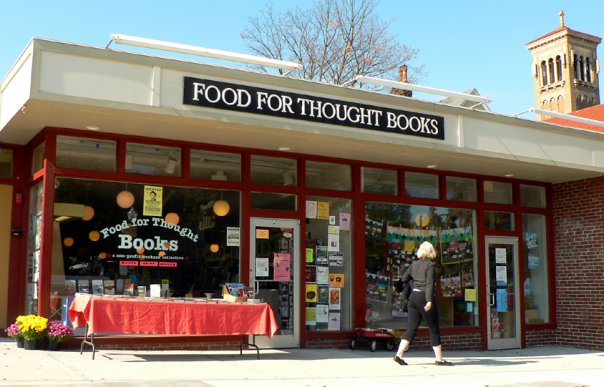 Food for Thought Books, Amherst, Mass., which launched a
Food for Thought Books, Amherst, Mass., which launched a  A fire Saturday night in Clifton, N.J., caused
A fire Saturday night in Clifton, N.J., caused 
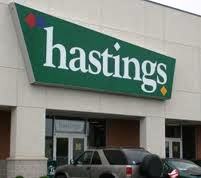 A federal court has issued a temporary restraining order against the
A federal court has issued a temporary restraining order against the 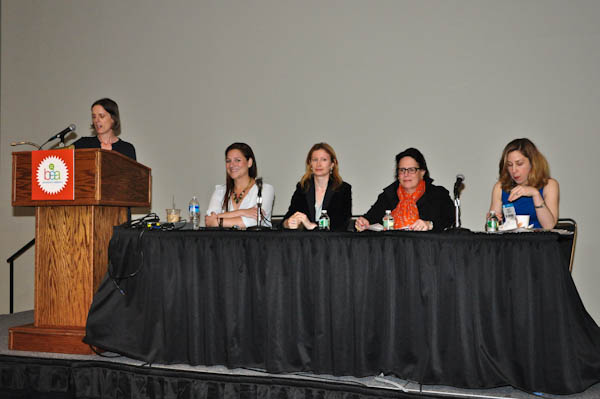
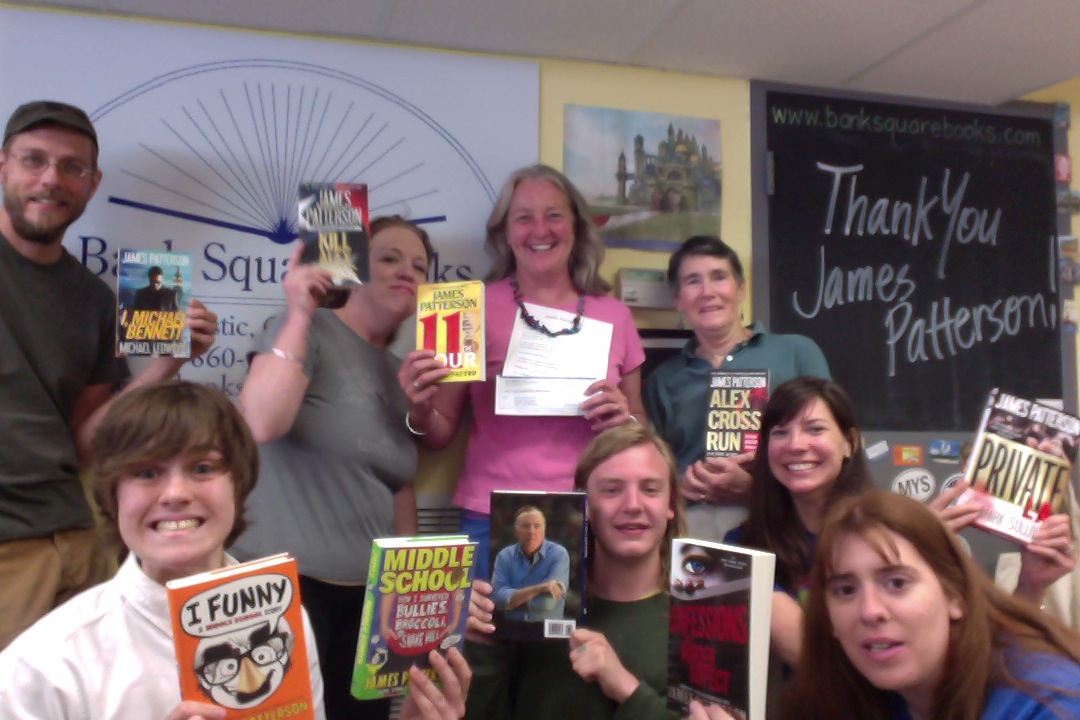
 Jack Covert, founder and president of business book retailer
Jack Covert, founder and president of business book retailer 
 Euphoria
Euphoria Is it hard to write books that keep series fans happy, but are still approachable for new readers?
Is it hard to write books that keep series fans happy, but are still approachable for new readers? Do you think you might ever decide to flash forward? Suddenly have Aimée and her 12-year-old kid interacting?
Do you think you might ever decide to flash forward? Suddenly have Aimée and her 12-year-old kid interacting? Do you have a favorite arrondissement? Do you stay in different areas when you're researching your books?
Do you have a favorite arrondissement? Do you stay in different areas when you're researching your books?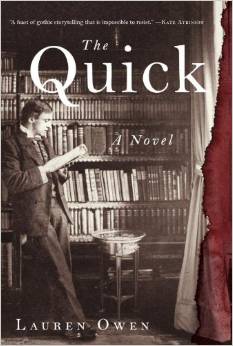 The owls have always been in young James Norbury's nursery. He and his sister, Charlotte, live in Aiskew Hall, an old, spacious Yorkshire house. Mother is dead, Father is usually away. Except for the housekeeper and a few employees, the children are alone. One of their favorite pastimes is playing in the hidden "priest hole" behind the moveable bookcase in Father's library. One day he returns, only to die soon after. It's now that Lauren Owen's first novel, The Quick, really gets going, perfectly rendering the rich and moody Gothic world of late-19th-century London.
The owls have always been in young James Norbury's nursery. He and his sister, Charlotte, live in Aiskew Hall, an old, spacious Yorkshire house. Mother is dead, Father is usually away. Except for the housekeeper and a few employees, the children are alone. One of their favorite pastimes is playing in the hidden "priest hole" behind the moveable bookcase in Father's library. One day he returns, only to die soon after. It's now that Lauren Owen's first novel, The Quick, really gets going, perfectly rendering the rich and moody Gothic world of late-19th-century London.